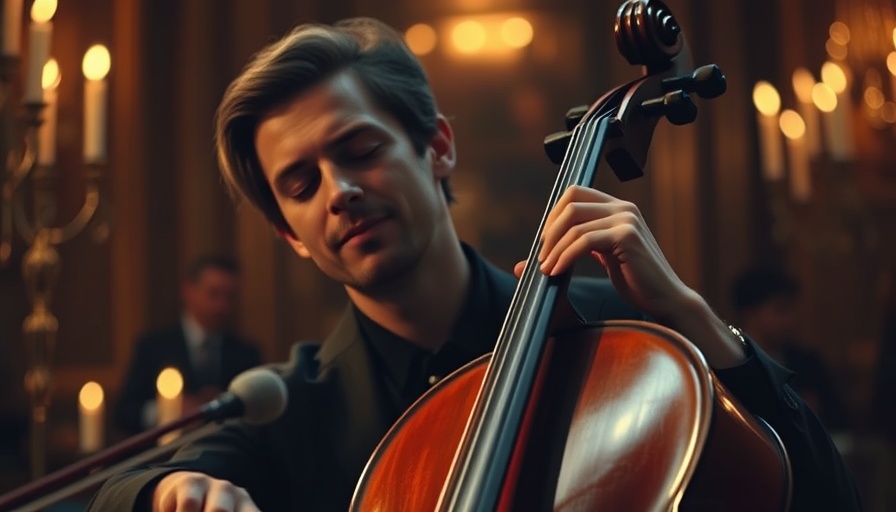
Transformative Power of Music in the Face of Long COVID
Joshua Roman, an accomplished cellist, recently shared a powerful story at TED2024 about his journey through long COVID and how music became a beacon of hope during his struggles. After contracting COVID-19 in January 2021, Roman faced a cascade of debilitating symptoms, including brain fog, crushing fatigue, and physical limitations that forced him to confront a harsh new reality. Despite his illustrious career, the emotional burden and physical challenges he encountered brought him to the brink of despair.
In 'How Music Helped Me Live Through Long COVID,' Joshua Roman shares his inspiring journey that prompted us to explore the transformative impact of music on health and resilience.
Roman described a moment of profound vulnerability when he found himself unable to navigate the simplest tasks, such as walking up a flight of stairs. This experience embodied the struggles many long COVID patients face—unseen battles with fatigue and neurological issues that disrupt daily life. As Roman noted, dysautonomia and cognitive difficulties affected his ability to perform at a level he had previously taken for granted.
Rediscovering Connection Through Music
After weeks of grappling with his illness and its impact on his identity as a musician, Roman made the poignant decision to pick up his cello again for a friend’s summer solstice party. This moment marked a significant turning point. Despite feeling unprepared, the act of playing the cello ignited a deep emotional response. The vibrations of the instrument flowed through him, reminding him of his lifelong love for music and its ability to offer solace and connection.
Roman's experience illustrates how often artists lose sight of their personal relationship with their craft amid demands and expectations. The pressures of perfectionism in performance had, for a time, overshadowed the healing and nurturing aspects of music. However, this intimate reconnection with the cello opened pathways for creativity that Roman had not expected. When he ventured to compose a new piece, he allowed himself the freedom to improvise, leading to a joyful composition he named "Immunity." This creation was more than music; it symbolized his journey toward embracing vulnerability and resilience.
The Healing Presence of Vulnerability
Roman’s journey is a testament to the importance of vulnerability in the artistic process and in life. He acknowledges that embracing one’s limitations can foster deeper connections—not only with the art form but also with oneself and others. In a world that often emphasizes perfection, Roman’s story reminds us of the beauty inherent in authenticity. Mistakes and challenges can breed creativity and innovation, inviting us to explore new dimensions of expression.
Long COVID may have altered Roman’s life, but it also catalyzed a transformation in his relationship with music. He understood that, through music, he could not only navigate his personal challenges but also share that journey with others. By choosing to make his struggles visible, he not only connects with audiences on a deeper level but also encourages others to embrace their vulnerabilities.
The Broader Implications for Long COVID Awareness
Roman’s narrative shines a light on the broader challenges faced by long COVID patients. Many individuals are still navigating this complex condition, which can exacerbate mental health issues, lead to social isolation, and create a struggle for daily functionality. By sharing personal stories like Roman’s, we foster a social connection that can help raise awareness, reduce stigma, and promote understanding around long COVID. It’s a reminder that empathy and openness can bridge gaps often exacerbated by individual experiences of illness.
As we look towards the future, the lessons drawn from Joshua Roman’s experiences can help inform both patient care and broader conversations about recovery. It highlights the need for supportive communities and systems that not only address the physical aspects of recovery but also nurture the emotional and creative well-being of individuals. In a world still recovering from the pandemic, stories like Roman’s remind us that healing can often begin with a simple return to what we love.
 Add Row
Add Row  Add
Add 




Write A Comment